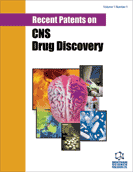Abstract
Pharmaceutical patenting involves writing claims based on both discoveries already made, and on prophesy of future developments in an ongoing project. This is necessitated by the very different timelines involved in the drug discovery and product development process on the one hand, and successful patenting on the other. If patents are sought too early there is a risk that patent examiners will disallow claims because of lack of enablement. If patenting is delayed, claims are at risk of being denied on the basis of existence of prior art, because the body of relevant known science will have developed significantly while the project was being pursued. This review examines the role of prophetic patenting in relation to the essential predictability of many aspects of drug discovery science, promoting the concepts of discipline-related and project-related prediction. This is especially directed towards patenting activities supporting commercialization of academia-based discoveries, where long project timelines occur, and where experience, and resources to pay for patenting, are limited. The need for improved collaborative understanding among project scientists, technology transfer professionals in, for example, universities, patent attorneys, and patent examiners is emphasized.
Keywords: In vitro, in vivo, patenting, prediction, prophetic patenting, reduction to practice.
 28
28





















